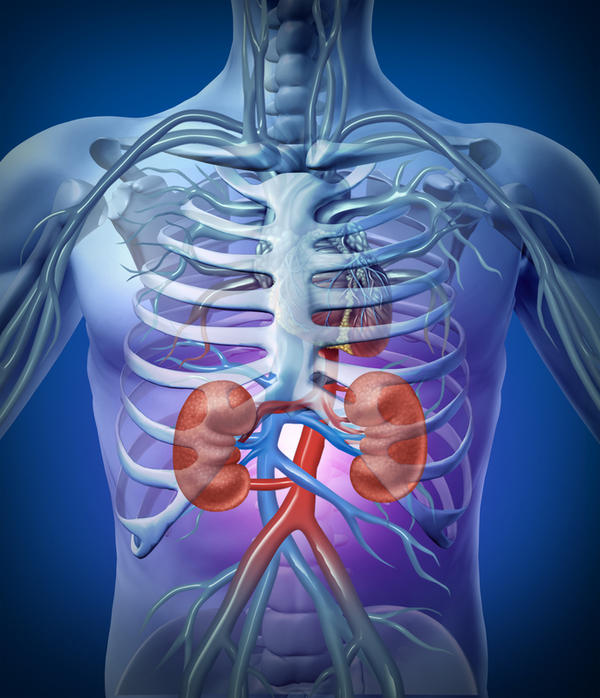Two New R01 Awards will Develop Methods of Alleviating Kidney Transplant Disparities

Rachel Patzer, PhD, MPH, former Georgia Clinical & Translational Science Alliance (Georgia CTSA) KL2 scholar and Georgia CTSA Master of Science in Clinical Research (MSCR) instructor, associate professor of surgery and epidemiology at Emory University School of Medicine and Rollins School of Public Health, and director of the Emory Transplant Center Health Services Research Program, is co-principal investigator on two new NIH R01 research project grants that address disparities associated with kidney transplantation.
Development of the iChoose Kidney app – Emory’s first mobile health app – was Patzer’s research project during her time as a KL2-Mentored Clinical and Translational Research Scholar. The app helps patients understand treatment options. Upon a patient's initial diagnosis of end-stage kidney disease, clinicians can enter patient data into the app, which in turn calculates the individualized risks of dying on dialysis versus a kidney transplant.
"My research project for the KL2 developing the iChoose Kidney app was my first experience moving from descriptive epidemiological analyses to intervening on a population level. I think it’s really important to not only describe barriers to access to care for populations, but also to use this information to inform evidence-based interventions to improve access and outcomes for transplant recipients," said Patzer.
One of her recent R01 awards will address the higher numbers of post-transplant hospitalizations that happen to African American and low socioeconomic status patients compared to white patients by using a community-based participatory research approach. Post-transplant hospitalizations are associated with heightened rates of graft loss and poor quality of life. The attempt to reverse this trend is especially critical for transplant centers in the Southeast, which treat the greatest number of African American transplant recipients in the U.S., and where poverty exacerbates care for end-stage renal disease patients. Collaborators for this grant include Emory transplant surgeon Andrew Adams, MD, PhD, Georgia CTSA investigator Cam Escoffery, PhD, MPH, associate professor, Department of Behavioral Sciences and Health Education, Emory’s Rollins School of Public Health, and predictive analytics expert Jimeng Sun, PhD, associate professor, College of Computing, Georgia Institute of Technology.
For the second grant, Patzer’s collaborator is Kimberly Jacob Arriola, PhD, MPH, a behavioral scientist and epidemiologist from Emory’s Rollins School of Public Health and Patzer’s former KL2 mentor. Patzer and Arriola will focus on the pervasive racial disparities that exist in access to living donor kidney transplant, where white end-stage renal disease patients are four times more likely to receive a living donor kidney transplant than African American patients. Their multi-center randomized controlled trial will seek to determine whether coupling a systems-level intervention known as Transplant Referral Exchange, or T-REX, with a web-based version of the culturally-sensitive educational package Living ACTS: About Choices in Transplantation and Sharing, will be effective at increasing living donor kidney transplant among African American patients.
The goal of the Georgia CTSA KL2-Mentored Clinical and Translational Research Scholars (MCTRS) program is to support career development for junior faculty (MD, PhD, or MD/PhD) from a wide variety of disciplines at Emory University, Morehouse School of Medicine (MSM), Georgia Institute of Technology (Georgia Tech), and University of Georgia (UGA) to become independent, established, and ethical clinical and/or translational research investigators. KL2 scholars receive salary support, a budget for their research, and tuition for the Master of Science in Clinical Research (MSCR) degree. Patzer was also a short-term TL1-Medical Scientist Trainee when she was a PhD student at Emory.
The Georgia CTSA is a statewide partnership between Emory, MSM, Georgia Tech, and UGA and is one of 64 in a national consortium striving to improve the way biomedical research is conducted across the country. The consortium, funded through the National Center for Advancing Translational Sciences (NCATS) and the National Institutes of Health’s Clinical and Translational Science Awards, shares a common vision to translate laboratory discoveries into treatments for patients, engage communities in clinical research efforts, and train the next generation of clinical investigators.